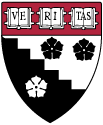Scratch Educator Meetup Breakout Session Notes: Scratch Assessment Strategies
« Scratch Educator Meetups
- Login to post comments
Special thanks to Josh Tappan for taking these notes during the "Scratch Assessment Strategies" breakout session at the November 2013 Scratch educator meetup, help at MIT on November 2, 2013.
Scratch Assessment Strategies
Purpose of assessment?
1. Know what someone is able to do
2. Feedback about what was learned.
3. Understanding knowledge kids are using
4. Judgment about performance
5. A way of seeing how well teacher’s teach and students learn
6. Demonstration of knowledge or skills
7. Giving learners an opportunity to make learning visible
Challenges of assessment
1. What does it mean to assess Scratch?
2. How to evaluate a project in a rigorous manner?
3. What would the rubric look like?
4. Two approaches to assessment:
a. Looking at an artifact and understanding the process
b. Having students explaining their own process and arrival at final result
c. How to do this in Scratch?
5. How to separate the task and creative process from the assessment?
6. What standards are being met through a project?
7. Assessment related to medium vs. assessment related to message.
What does it mean to assess Scratch projects or computer science projects in general? Strategies for assessment
1. Tie projects into “Habits of Mind” standards
2. Scratch rubric example: http://scratched.media.mit.edu/resources/rubric-assessing-scratch-projects-draft-0
3. Ramapo School district rubric: https://docs.google.com/file/d/14bbr5_UQNeWHpSi9ni1PK6qZmF3OmfyZGkeslX0XsIw/edit?usp=drive_web&pli=1
4. ScratchEd curriculum guide: http://scratched.media.mit.edu/resources/scratch-curriculum-guide-draft
5. Prioritize teacher communities to discuss assessment to deepen understanding of computer science skills.
6. Use examples of projects for typical levels of understanding for comparison
7. Columns: “I need to learn how to use this” “I can use this” “I can teach someone else how to use this” to assess what students know.
8. Importance of students documenting their project in assessment. https://int.erlace.com/ - collaborative documentation where students can post problems, questions, screenshots, solutions, etc. relating to their Scratch projects
9. Royal Society curriculum guide http://scratched.media.mit.edu/resources/starting-scratch
Scratch Assessment Strategies
Purpose of assessment?
1. Know what someone is able to do
2. Feedback about what was learned.
3. Understanding knowledge kids are using
4. Judgment about performance
5. A way of seeing how well teacher’s teach and students learn
6. Demonstration of knowledge or skills
7. Giving learners an opportunity to make learning visible
Challenges of assessment
1. What does it mean to assess Scratch?
2. How to evaluate a project in a rigorous manner?
3. What would the rubric look like?
4. Two approaches to assessment:
a. Looking at an artifact and understanding the process
b. Having students explaining their own process and arrival at final result
c. How to do this in Scratch?
5. How to separate the task and creative process from the assessment?
6. What standards are being met through a project?
7. Assessment related to medium vs. assessment related to message.
What does it mean to assess Scratch projects or computer science projects in general? Strategies for assessment
1. Tie projects into “Habits of Mind” standards
2. Scratch rubric example: http://scratched.media.mit.edu/resources/rubric-assessing-scratch-projects-draft-0
3. Ramapo School district rubric: https://docs.google.com/file/d/14bbr5_UQNeWHpSi9ni1PK6qZmF3OmfyZGkeslX0XsIw/edit?usp=drive_web&pli=1
4. ScratchEd curriculum guide: http://scratched.media.mit.edu/resources/scratch-curriculum-guide-draft
5. Prioritize teacher communities to discuss assessment to deepen understanding of computer science skills.
6. Use examples of projects for typical levels of understanding for comparison
7. Columns: “I need to learn how to use this” “I can use this” “I can teach someone else how to use this” to assess what students know.
8. Importance of students documenting their project in assessment. https://int.erlace.com/ - collaborative documentation where students can post problems, questions, screenshots, solutions, etc. relating to their Scratch projects
9. Royal Society curriculum guide http://scratched.media.mit.edu/resources/starting-scratch

